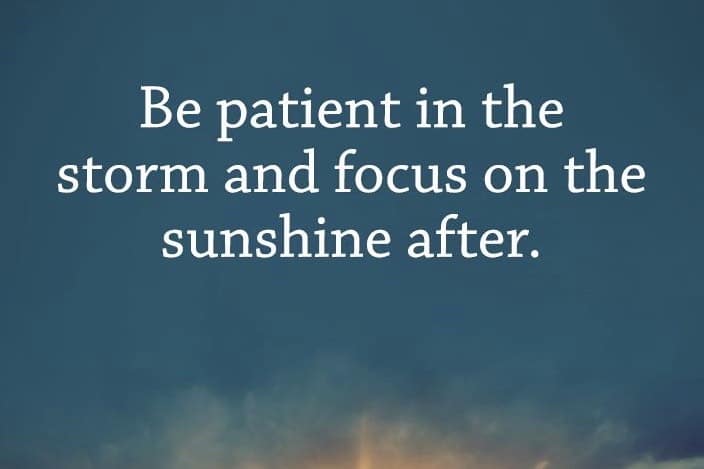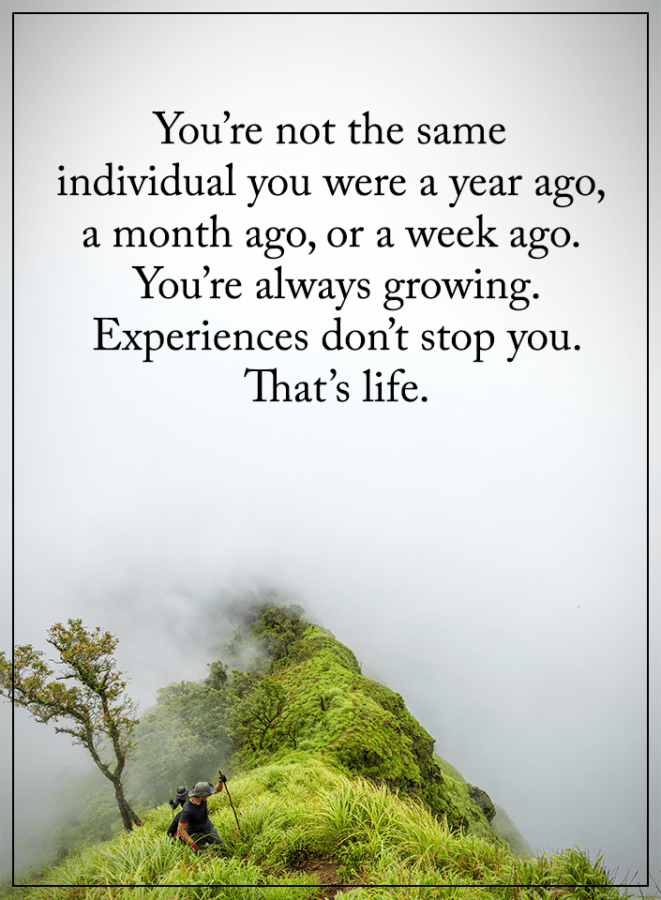Life isn’t easy, and you don’t need us to tell you. Life can actually be pretty unfair at times.
“She stood in the storm, and when the wind did not blower her way, she adjusted her sails.” ~ Elizabeth Edwards
Elizabeth Edwards knew all about weathering life’s storms. Edwards, a tough-as-nails woman, battled breast cancer, her husband’s (2004 vice presidential candidate, John Edwards) infidelity, and constant hounding by the press.
Throughout it all, she displayed nothing but class. This despite her morally bankrupt husband creeping around while she battled the disease that would ultimately claim her life.
Elizabeth Edwards demonstrated an irrefutable truth. We’re all going to deal with personal battles; some of them horrifically difficult.
Maybe the question to ask instead is “What have I learned from my setbacks? What can I learn?” To this point, the odds are that you’ve learned a great deal from some difficulties, while next-to-nothing for others.
This isn’t disparaging your character. We’re all human; as such, we gain wisdom from obstacles – but only to a certain point.
Unless we’re taught otherwise.
And here’s some valuable instruction: we can learn from any obstacle. Elizabeth Edwards knew this – even throughout her final days.
The Harvard Study
The ‘Harvard Grant Study’, one of the longest-running academic studies in history, followed the lives of hundreds throughout a 75-year period. The question researchers were attempting to answer: “What are the ‘secrets to a happy and purposeful life?’ (Hint: it has nothing to do with money or “success.”)
George Villant, a researcher and psychiatrist who oversaw the study, reached the following conclusion based on an overwhelming amount of evidence: The happiest people were those with the ability to ‘make gold’ out of the ugliest of situations.
The ability to steadfastly embrace and accept the adverse events in life has a “significant effect on social support and overall wellbeing.”
Keeping a “challenge notebook”
Based on the study’s findings, Villant confidently insists that everyone should keep a “challenge notebook,” documenting every challenge faced throughout life. More specifically, Dr. Villant insists that the happiest people ask the following four questions when things “don’t go to plan.”
How to Embrace the Storms In Your Life (Without It Getting You Down)
1. What can I learn from this?
It’s tempting to see any challenge we face as annoying at best and devastating at worst. But after things have settled, a critical question we ought to ask is “What can I learn from this situation?”
And no, “nothing” is not an acceptable answer. Regardless of how bleak that situation may appear, there’s always something to discover.
Let’s say you were let go from your job; without question, a potentially disastrous situation.
After you’ve come to grips with your job loss, ask yourself “Is this where I envisioned myself?” “Was the job my calling?” “What, if anything, can I do better next time?”
Answer honestly. You may just surprise yourself.
2. How am I stronger from this?
Viewing challenges as opportunities is one of the most powerful human traits – and something we’re all capable of.
Whether or not we realize, adverse events have a way of strengthening our character. If we’re able to admit this fundamental truth – proven again and again over thousands of years – we can not only confront challenges but uncover abilities and strengths that we never knew existed.
3. How is this situation advantageous?
If we’re mindful, life challenges can present a golden opportunity to develop ourselves.
Let us use another example: your children “flew the coup,” heading off to college or somewhere far from home for the first time. Sad? Absolutely. We love our kids – and they’ll always be part of us.
But if you stop and reframe the situation – say, from bleak and depressing to liberating and opportunistic – you may just realize the beauty of it all.
Your children, for the first time, have the opportunity to seek out life’s adventures. You have more time to devote yourself more to things you’re passionate about.
4. How can I use this situation to help others?
Here’s another example: military spouses who must contend with extended separations from their spouse.
Spouses, predominantly wives within the Army, Navy and Marine Corps, have leveraged their experience of time away from their husbands in a heartwarmingly constructive fashion: educating husbands and wives of military spouses on what to expect during periods of prolonged separation.
Once again, a very difficult and potentially heart-wrenching situation that may be a blessing in disguise. For if you hadn’t faced such a daunting obstacle, there’s no possible way you’d be able to help those in said obstacle’s grasp.
“Resilience is very different from being numb. Resilience means you experience, you feel, you fail, you hurt. You fall. But, you keep going.”















 Community
Community

